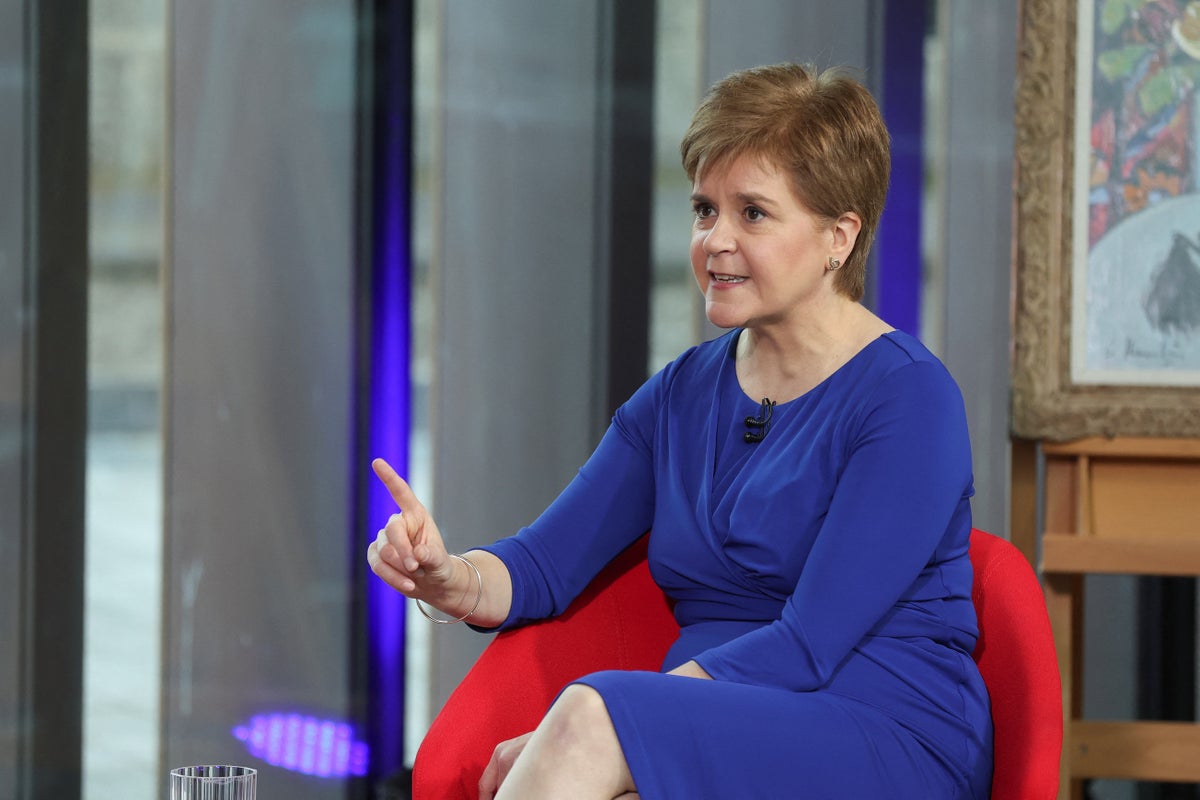
Scottish independence will not rely on “back-of-a-fag-packet” planning like Brexit, a Scottish minister has said.
Neil Gray’s comments came after Nicola Sturgeon unveiled her plans for the economy in an independent Scotland on Monday, with the third in a series of papers designed to refresh the prospectus for an independent Scotland.
The First Minister said Scotland would continue to use Sterling after a vote to leave, only moving to a new Scottish pound when a number of requirements are met, including when the country is fiscally sustainable.
Ms Sturgeon repeatedly refused to say how long that period would last, but intimated in an answer to one journalist that she hoped it would be less than five years.
She also said there would be border checks on two major trunk roads and rail freight terminals between Scotland and England in the event of the country gaining EU membership.
The First Minister also said renewable energy would be the “bedrock” of the economy of an independent Scotland as North Sea revenues decline.
Speaking on BBC Radio Scotland on Tuesday, one of Ms Sturgeon’s ministers rejected comparisons with the Brexit campaign.
“We have produced already three prospectus papers, we’ve got more to come in the series, where we’re setting out the case to the people of Scotland, giving them the information so they can make an informed choice,” Europe minister Neil Gray said on Good Morning Scotland.
“It’s not possible to compare the well-informed choice that people in Scotland are going to make over independence with the back-of-a-fag-packet case that was presented to people before the Brexit referendum.”
He added: “We’ve got a plan not just to put to the people of Scotland in terms of a choice to make, but also one that would inform our state-building after a Yes vote in an independence referendum.”
No unified prospectus was put forward before the 2016 referendum on leaving the EU.
Asked if he believes Monday’s paper will shift opinion in favour of independence, Mr Gray simply said: “Yes.”
Meanwhile, Scottish Tory leader Douglas Ross said the measures set out in the paper could lead to an “economic collapse” if Scotland becomes independent.
While a central bank would be established and a currency created, the Scottish Government has said Scotland would continue to use Sterling, but the Bank of England would be in control of monetary policy and would have “no interest in or responsibility for doing anything to protect Scottish finances”.
“It’s clear what that would mean,” he wrote in the Scottish Daily Mail on Tuesday.
“At national level, everything from macroeconomic policy to exports to inward investment, and at a personal one, everything from your mortgage rate, your pension and the price of food would have no effective safeguards.
“We’ve seen what can happen in countries from Zimbabwe to Venezuela. If even the UK – one of the world’s five or six largest economies and a leading member of the G7 – can have a serious economic reaction, the lesson from those nations is that, without the power to correct it, the outcome can be hyperinflation and hundreds of thousands of people fleeing near-total economic collapse.
“It is in no way talking Scotland down to suggest that it could happen here.”







